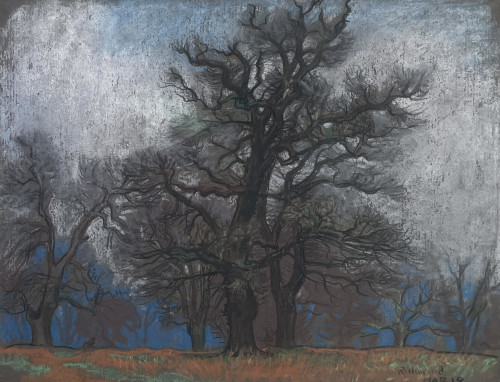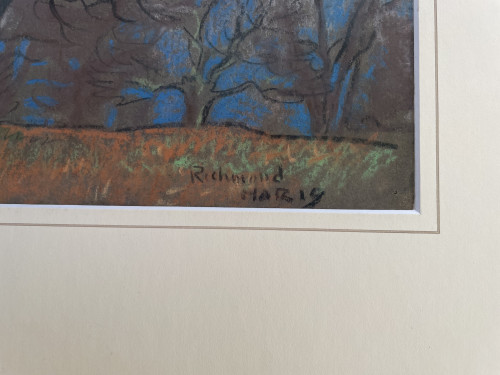George Clausen

1852 - 1944
Denmark George Clausen was born in Denmark to a Danish interior designer father and a Scottish mother. The family emigrated to England, and he was apprenticed to a decorator's office in London. Whilst there, he also attended evening classes at art school in South Kensington. He met the artist Edwin Long when, he was sent to decorate a door at his home and with Long's encouragement, Clausen enquired a scholarship to fully study at art school. He then went on to train at the Antwerp Academy. He first exhibited at the Royal Academy soon after this with a study of the Dutch coastline, which was well received. He also visited Paris, and paid great attention to the Salon Naturalism style such as that of Jules Bastien-Lepage. He returned to London and exhibited in several galleries. Clausen was a founding member of the New English Art Club, in an attempt to help reform the Royal Academy's selection process. In 1891 he continued to exhibit at that institution. In the same year, he moved to Essex, which had a direct effect on his painting style. In 1904 he became Professor of Painting at the Royal Academy; he was highly popular in this role, which he held for two years. In 1917 he was appointed Official War Artist, but was not sent overseas because of his age; instead he was assigned to paint at Woolwich Arsenal. After the war he was commissioned the mural work Wycliffe's English Bible at the Houses of Parliament,
Denmark George Clausen was born in Denmark to a Danish interior designer father and a Scottish mother. The family emigrated to England, and he was apprenticed to a decorator's office in London. Whilst there, he also attended evening classes at art school in South Kensington. He met the artist Edwin Long when, he was sent to decorate a door at his home and with Long's encouragement, Clausen enquired a scholarship to fully study at art school. He then went on to train at the Antwerp Academy. He first exhibited at the Royal Academy soon after this with a study of the Dutch coastline, which was well received. He also visited Paris, and paid great attention to the Salon Naturalism style such as that of Jules Bastien-Lepage. He returned to London and exhibited in several galleries. Clausen was a founding member of the New English Art Club, in an attempt to help reform the Royal Academy's selection process. In 1891 he continued to exhibit at that institution. In the same year, he moved to Essex, which had a direct effect on his painting style. In 1904 he became Professor of Painting at the Royal Academy; he was highly popular in this role, which he held for two years. In 1917 he was appointed Official War Artist, but was not sent overseas because of his age; instead he was assigned to paint at Woolwich Arsenal. After the war he was commissioned the mural work Wycliffe's English Bible at the Houses of Parliament,
and for which he received a Knighthood.
2 ITEMS


